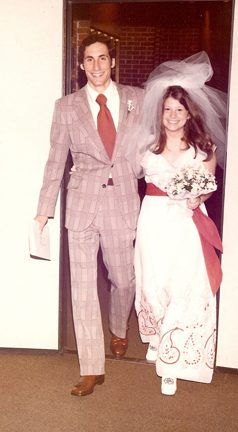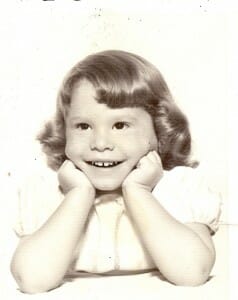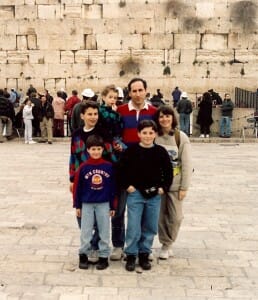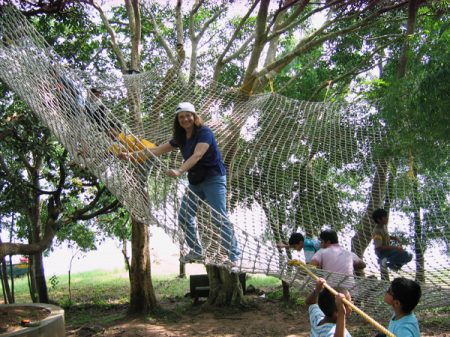
 My perspective is a work in progress. During early childhood, my perspective was mostly influenced, and to a certain extent controlled, by my parents. My childhood and adolescent years were spent in an affluent suburban neighborhood and school system in Highland Park, Illinois. Like many protective parents, mine limited my interactions with the outside world and chose the environments that I would visit outside our home.
My perspective is a work in progress. During early childhood, my perspective was mostly influenced, and to a certain extent controlled, by my parents. My childhood and adolescent years were spent in an affluent suburban neighborhood and school system in Highland Park, Illinois. Like many protective parents, mine limited my interactions with the outside world and chose the environments that I would visit outside our home.
Their restrictive behavior caused me to retreat. For most of my childhood, I was shy and reserved. I found it easier to avoid confrontation by not doing anything that would cause an issue. I was rarely encouraged to come out of my shell and explore the world. The thought of stepping outside my comfort zone was not a consideration.
My mother did not work full-time outside the home. I don’t know where she went, but she was rarely home. She employed a series of women who were responsible for taking care of her children and doing light housework. While most of these women’s faces are a blur, our day-to-day contacts undoubtedly affected my thinking. A revolving door of caretakers created a backdrop of uncertainty. It left me craving for someone whom I could depend on.

Zermatt Summer Camp 1972
For nine years, I attended overnight summer camps in Eagle River, Wisconsin. Even though my summer peers came from several different states, they all shared similar backgrounds. The North Woods did provide a change in scenery and an appreciation of Mother Nature’s wondrous acts. One special summer, I went with a handful of Nicolet campers to Zermatt, Switzerland. This exposure to European culture had a profound effect on me. For the first time, I realized the importance of seeing other parts of the world.
Since I rarely traveled as a child, I had almost no exposure to life outside suburbia. My sheltered existence made me less likely to see the “big picture.” The only way to get a first-hand glimpse of what lay beyond the boundaries of suburbia was an occasional trip into Chicago. Back then, there was no such thing as the internet or reality TV. I was left to wondering whether taped TV shows and movies reflected life outside of Highland Park. These outside influences had little affect on my outlook. I was content to maintain the status quo by adhering to an expected mindset.
As I matured, I became more mobile. I was less dependent on my parents and more aware of what was happening outside suburban Chicago. Teachers, books, magazines, and acquaintances offered differing views. My perspective started to shift much like a see saw that needs to be rebalanced. For many years, my perspective had been swayed by my upbringing. Now, new ideas were making my perspective more balanced. I was gaining confidence to step outside the box.
Unlike many of my peers who chose to attend college in Illinois or the Midwest, I desired to head west. Colorado was my first choice. While attending the University of Colorado-Boulder, the pendulum started to swing even more in favor of my experiences. After all, I was a college student in the 1970s attending a mecca for liberal ideas. Wasn’t I supposed to have a rebellious streak?
Yes, to a certain extent that was true. But more importantly was the fact that I was exposed to people from different socio-economic groups who came from different parts of the world. Approximately 40% of the students were not Colorado residents. Many of my first acquaintances came from rural Colorado farm communities.
My time in glorious Colorado was cut short because I chose to marry early. This undoubtedly caused an upheaval in my perspective, especially since my parents did everything in their power to stop my wedding and limit my education. My husband’s parents graciously added me to their college tuition budget. Without their help, I never would have been able to complete my undergraduate degree.

Love prevailed. Against all odds, a marriage at age 18 is still thriving 38+ years later.
Returning to Chicago to finish my college education was certainly not high on my “must do” list. But my husband’s professional training took precedence. This time around my college experience was split between an urban commuter school, the University of Illinois-Chicago, and a tiny Jewish college, Spertus College. My new classmates were very different from the ones I left behind. Inner city kids constituted the majority of the student body at the state university. Middle-aged Jewish women filled up most of my Jewish classes.
My Jewish professors rekindled my Jewish identity that had been dormant since my preschool years. Other than a year of Jewish preschool, I had received no formal Jewish education. My family life had provided minimal exposure to Jewish holidays and lifecycle events. My understanding of Judaism was an embarrassment. After becoming entrenched in Jewish classes, all of my actions were now seen through a Jewish perspective.

Within a few years of completing college, I chose to be a stay-at-home mother. Long ago, I had realized the importance of the early years and how much a child’s early beliefs are shaped by their parents. I strived to create family experiences that would hopefully not be eclipsed by outside influences. My husband and I decided to include family travel into our yearly budget. We both realized the impact of being a well-rounded individual. Exposure to different people and places was going to be a vital part of our children’s upbringing.
During those childbearing years, I relied more on my recent experiences than my upbringing. The see saw analogy had now flipped to the other side. I did not look to my childhood for any guidance. Instead, I used that time in my life as a manual for what I should avoid. I purposely did not select an absentee mother as a role model. If I was not going to pursue a career outside the home, I was going to make every second count inside the home. Meeting the needs of 4 maturing children became my goal. I wanted to be the one to instill values and ethics.

Near the end of my childrearing years, I took a bold step. I accepted an international teaching position in Bangalore, India. Suddenly, I was thrust into a world that was far different from anything I had ever witnessed. In order to survive, I had to reach deep and anchor myself on the beliefs that I had gathered from my childhood until the present. I clung deeply to my Jewish identity as I strived to make sense of a Third World country that followed a Hindu and Muslim mindset.
As I coped with the challenges of living so far away from family and friends, I became more open to other people’s perspectives. Living in a foreign place was 20 times more empowering than merely traveling to an unknown area. Now, my solo expat experience was responsible for altering my perspective. While I realize that it is unlikely that I will ever live abroad again, a part of me longs to have another adventure. By continually trying to embrace a flexible outlook, I am acknowledging that my perspective is a work in progress.
In a flash, I was an empty nester. My four sons were no longer dependent. My teaching career had sputtered after living abroad. Ageism appeared to be the culprit. A passion for writing was taking control. Could I maintain a flexible perspective while I explored a writing career path? I needed to remain vigilant and forestall the lack of confidence from my youth. Self-assurance and tremendous patience needed to prevail. With laptop in hand, I march forward on my writing journey.
- Is your perspective a work in progress?
This posting is responding to the NaBloPoMo prompt- “What has had more influence on your life perspective: your upbringing or your experiences?”
Related Blogs:
Keeping a Balanced Perspective
Can You Acknowledge a Different Perspective?
A New Goal-Daily Blogs in February
Confronting an Irrational Fear
Empty Nester Roller Coaster Ride
Coping With the Uncertainties of Life
Bio
Sandra Bornstein is the author of MAY THIS BE THE BEST YEAR OF YOUR LIFE. It is available on Amazon.
Sandra’s memoir highlights her living and teaching adventure in Bangalore, India. She is a licensed Colorado teacher who has taught K-12 students in the United States and abroad as well as college level courses. Sandra is married and has four adult sons.
The memoir was a finalist in the Travel category for the 2013 Next Generation Indie Book Awards, the 2013 International Book Awards, the 2013 National Indie Book Excellence Awards, 2013 USA Best Book Awards, and a Honorable Mention award in the Multicultural Non-Fiction category for the 2013 Global ebook Awards.
This was a most interesting post Sandra thank you. I think our perspective always changes if we remain open to ourselves and the world. We can give thanks for our early influences, or not, but we do not have to be defined by our conditioning.